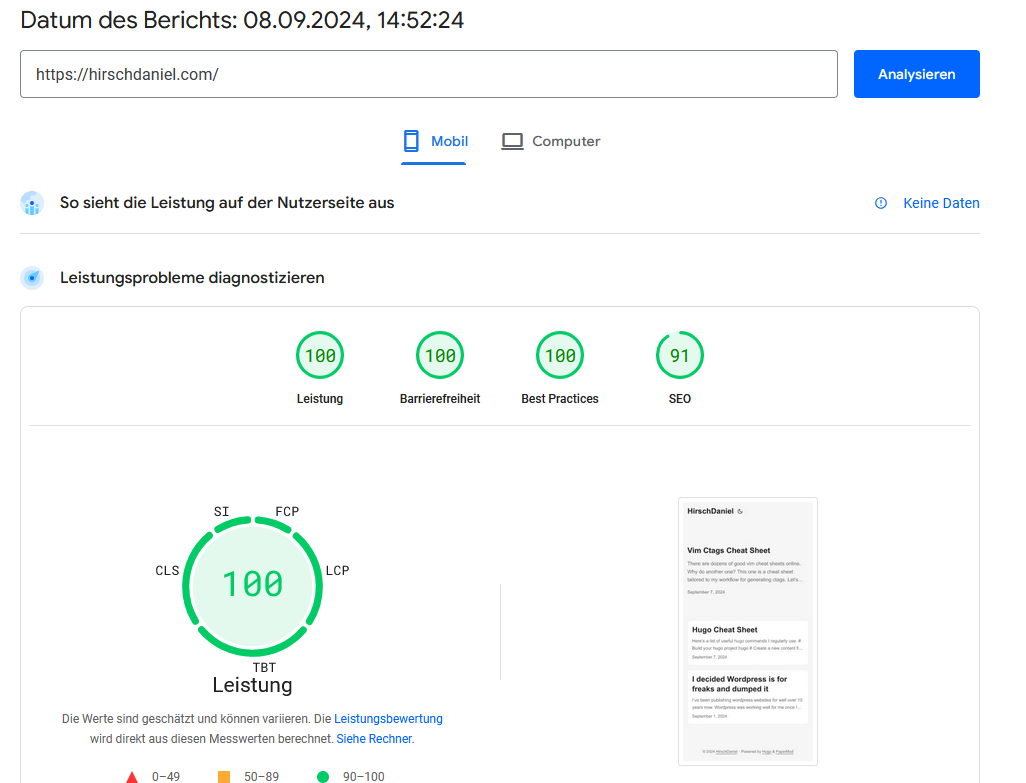Over the last 10 years, I published at least 20 different websites. Some of them went viral and reached tens of thousands of daily visitors. But most of them went under the radar. For small websites, I had a shared hosting plan. I paid 10$ for unlimited domains on a shared host. Performance was meh. But I had no complaints from the visitors I had. A couple of websites I moved to a dedicated cloud hosting provider, which provides me a powerful server to run wordpress on. Cost-wise I found dedicated cloud hosting the much better choice. And websites don’t go down because the guy you’re sharing a host with is getting DDOSed. Over those 10 years, my hosting costs accumulated to well over 1,000$. Not much for businesses, but for a private person it is something.
Serving static content? Reasons to use github pages.
Around a few years ago, I discovered GitHub Pages, and since then, it has become my go-to solution for hosting static websites. Compared to traditional hosting solutions like shared or dedicated cloud hosting, GitHub Pages has proven to be a clear winner for several reasons:
1. Money Saved
The most obvious benefit is cost savings. GitHub Pages is completely free for hosting static websites. There’s no need to pay for a shared hosting plan or a dedicated server when all you have is static content like HTML, CSS, and JavaScript. This is especially useful for personal projects or small websites that don’t need server-side processing. Since switching to GitHub Pages, I’ve eliminated this recurring expense.
2. Iteration Speed
Another big advantage is how quickly I can push updates. Since GitHub Pages directly integrates with Git, every time I commit and push changes to the repository, the website is updated instantly. There’s no need to mess with FTP clients, databases, or complex CMS configurations. The simplicity of Git, combined with the power of GitHub Actions if needed, means my iteration speed has gone through the roof. I can make and deploy changes in seconds, not minutes or hours.
3. Near Zero Downtime
One of the things that made me reluctant to stick with shared hosting was the downtime. If someone else on the server was getting attacked, or if there was a server issue, my websites were affected too. GitHub Pages is backed by GitHub’s robust infrastructure, which means there’s practically no downtime. In all the years I’ve used it, I haven’t experienced any outages, which is a stark contrast to shared hosting and even some dedicated cloud hosts.
4. No Database Hassle
WordPress is great, but it’s heavy. It requires a database, and managing databases brings a new layer of complexity—backups, security, updates, optimization, and so on. With GitHub Pages, I no longer have to worry about databases. Everything is static, and since my websites don’t rely on dynamic content generation, I don’t need the overhead of a CMS like WordPress.
5. Minimal Data Size
Static websites are inherently lightweight. The absence of server-side scripts, plugins, and large databases means that I only serve the essential files—HTML, CSS, JavaScript, images, keeping the data footprint small. This helps reduce load times and makes my websites faster, which is crucial for user experience, SEO, and handling traffic spikes. Even when some of my websites went viral, the lightweight nature of static content meant GitHub Pages could handle the load effortlessly.
Let me show you my Google Pagespeed Insights score.

| Metric | Score (100 is highest possible) |
|---|---|
| Speed | 100 |
| Accessibility | 100 |
| Best Practices | 100 |
| SEO | 91 |
A standard wordpress installation will not reach those values unless you setup serious architecture, including local caching, .htaccess rules, cloud caching / CDN (content delivery network), image compression, a SEO plugin, lightweight or system fonts. Overall, a wordpress website needs to be engineered, wheras static content just works.
6. Version Control Built-in
One of the lesser-talked-about advantages is the built-in version control. Since my websites are hosted directly from GitHub repositories, I automatically get version history for all my updates. I can easily roll back changes, track what was deployed when, and maintain a clear workflow, something that’s far from easy with traditional hosting setups.
Conclusion
While WordPress and traditional hosting might still have their place for larger, dynamic websites, for my personal projects and static websites, GitHub Pages is a far better option. The combination of zero cost, fast iteration, near-zero downtime, and minimal complexity has made it a no-brainer for me. It’s simple, effective, and reliable—a perfect solution for those who want to focus on content without worrying about hosting intricacies.